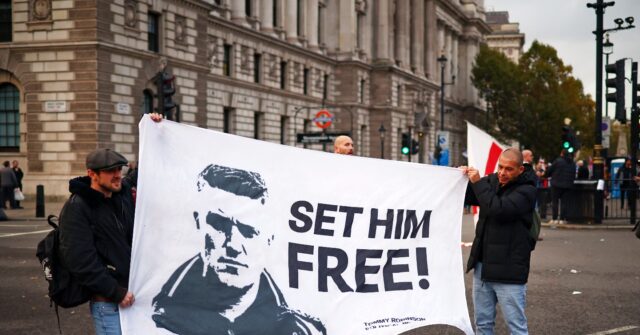Tommy Robinson, a well-known English activist, acknowledged his guilt in outright contempt of court for breaching an injunction that prohibited him from repeating defamatory statements regarding a Syrian refugee named Jamal Hijazi. This admission was made at Woolwich Crown Court, where Robinson, aged 41, conceded that he had violated a court order stemming from a successful libel lawsuit brought against him by Hijazi in 2021. The case arose from an incident in 2018 when Hijazi, a schoolboy who had escaped war in Syria, was recorded being attacked by fellow students at Almondbury Community School in Huddersfield, West Yorkshire. In the aftermath of this troubling event, Robinson made inflammatory remarks claiming Hijazi was guilty of violent behavior against young English girls, statements that the courts later deemed unfounded.
As a result of the libel case, Hijazi was awarded £100,000 in damages, with the court ruling firmly against Robinson’s assertions. Undeterred, Robinson has continued to assert the truth of his claims, including in his documentary film “Silenced,” as well as in various interviews conducted in public forums. His refusal to retract these statements has now led to significant legal troubles, as he faces the possibility of up to two years in prison, hefty fines, or perhaps both for violating the injunction that prohibits him from repeating his libelous allegations against Hijazi.
Robinson’s legal troubles are not new. Over the years, he has been imprisoned on multiple occasions, most recently for breaching reporting restrictions by filming individuals implicated in grooming gang trials as they were entering the courtroom. These individuals were later convicted of a widespread campaign of sexual abuse against young girls. This pattern of behavior has drawn considerable public attention, often leading to controversies surrounding Robinson’s views and actions in relation to crime and ethnicity, particularly regarding his vocal opposition to grooming gangs.
In addition to the contempt of court issues, Robinson is currently facing terrorism charges. These stem from his refusal to provide the PIN for his mobile phone to authorities. Under legislation introduced during the tenure of former Prime Minister Tony Blair, law enforcement can demand that individuals traveling through British ports submit their electronic devices to check for potential involvement in terrorist activities. This legal framework has raised questions about civil liberties in the UK and sparked debates about what constitutes a threat to national security.
Robinson’s recent arrest and detention occurred just before a significant rally in London, which his supporters planned to hold in his defense. The gathering was aimed at voicing concerns about the criminal charges against him and advocating for what they perceive as threats to free speech in contemporary Britain. Supporters have also voiced their belief that there exists a “two-tier” justice system within the country, suggesting that certain individuals may receive preferential treatment based on their social standing or beliefs.
As Robinson’s various legal battles continue to unfold, they serve as a focal point for wider discussions surrounding free speech, accountability, and the complex interactions between activism and public safety. The case has garnered media attention and public discourse, particularly around the implications of Robinson’s actions on the right to free expression and the responsibilities that come with it. With possible severe repercussions looming for Robinson, this situation may further contribute to the ongoing debate within Britain regarding the balance of free speech, legal limits on expression, and the nature of justice in the face of activism.

